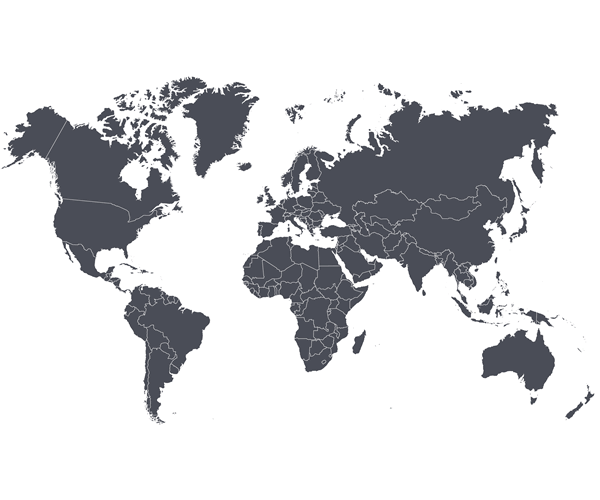MSc Digital Health Systems
ApplyKey facts
- Start date: September
- Accreditation: Chartered Institute of Library and Information Professionals (CILIP)
- Study mode and duration: 12 months full-time
Study with us
- become a digital transformation leader in the field of health and care IT
- gain skills in the management and analysis of large data sets and use of statistical software packages
- develop knowledge and understanding of the legal, ethical and professional responsibilities of digital health specialists within the organisational, technical and global contexts in which digital health technology is deployed
- learn how to manage and analyse data collected from personal devices and large-scale health and care systems
- learn how to design usable systems and prototype applications specific to user needs
- learn about technology accessibility for older adults
- develop implementation knowledge and skills to support planning, delivery and adoption of health and care systems
- develop individual research skills and experiences by working on an individual research dissertation project that addresses a specific issue relating to digital health. Supervisors suggest project ideas and you evolve your allocated topic further during your dissertation
Why this course?
Digital Health is one of the fastest growing economic sectors worldwide. There's significant potential for the transformation of health care through better and widespread use of digital technologies. This includes a growing role for technology in supporting people to monitor and manage their own health and wellbeing. (The King's Fund 2022)
The global digital health market was estimated at $288.55 billion in 2024 (Digital Health Market Size and Share Induustry Report 2030), and is predicted to continue to grow at pace even further over the next 5 years and beyond.
This one-year Masters degree is the perfect conversion pathway for recent graduates looking to move into the health and care sector. It's also ideal for existing health and social care practitioners looking to up-skill in digital innovation and move into leadership and transformational roles.
Our course is unique because:
- it is delivered by a broad range of world experts in computing science, information science, psychology, and health services research
- it is relevant to real-world practice by drawing on various examples of health, care and industry innovations
- it integrates research-led teaching across the curriculum
- it takes a multifaceted whole systems approach involving people, technology, practice and policy
You'll learn about state-of-the-art devices (for example sensors, wearables, apps), systems (for example electronic health records, remote monitoring) and methods within digital health systems (for example co-design, machine learning and data analytics).
You'll also learn about health and care implementation, innovation and how to deliver real world digital health solutions in context and at scale.
Why choose Strathclyde?
In the video below, Fatima explains why she chose to study with us:

What you'll study
This course is unique in that it looks at the human, technology and system perspectives in a whole systems approach to transformation of digital health and care. It explores not just the clinical perspective but also social care, third sector and consumer care models. We'll consider how to incorporate codesign and implementation science throughout, to ensure adoption and success of future digital health solutions and services.
You'll study:
- digital health implementation focusing on different digital health solutions and various barriers and facilitators to their implementation in health and care settings
- full lifecycle of designing, developing and evaluating health technologies from mHealth – novel personal health and wellness devices (for example, mobile apps, wearables) to eHealth – larger scale hospital and community based IT systems (such as electronic health records)
- agile participatory and co-design approaches for delivering health and care IT solutions
- practical and innovative software and data management techniques for managing (databases) and using data (data analytics) produced across a range of systems to support decision making, planning, and delivery of better care
- how to manage complex legal, ethical and governance issues within healthcare
- how to apply theories and models of human information behaviour to the holistic analysis and design of health and social care systems
- how technology enabled health and care solutions can be implemented and evaluated at scale
The course also offers guest lectures from experts in the field from health, care and industry sectors.
The course includes 120 credits of taught material taken over the first two semesters, and a 60-credit digital health project that runs, typically, from May to September. Your dissertation project will address a specific issue relating to digital health. Supervisors suggest project ideas and you evolve your allocated topic further during your dissertation semester.
Digital Health & Wellness Research Group
You'll be taught by various academics and researchers who are members of the multidisciplinary Digital Health & Wellness Research group based in Computer and Information Sciences. We've led, and been involved in, several major collaborative research and development projects and evaluations within the UK and internationally.
Strathclyde Masters student selected to join healthcare leadership programme
Dr Dagmawit Gashaw, studied for the MSc Digital Health Systems in 2023-2024. She was among 79 members of the 2023-2024 cohort for the Healthcare Leadership Academy (HLA) Scholars programme, who were chosen from applicants from 27 countries.
It is an incredible opportunity to be part of the team, acquire great leadership skills from real-time coaches and directors, and contribute to improving the health system in my country. - Dr Dagmawit Gashaw

Chat to a student ambassador
Want to know more about what it’s like to be a Science student at the University of Strathclyde? A selection of our current students are here to help!
Our Unibuddy ambassadors can answer all your questions about courses and studying at Strathclyde and offer insight into their experiences of life in Glasgow and Scotland.
Digital Health Implementation (20 credits)
This module will provide you with an in-depth understanding of a wide range of digital health interventions. You will learn about health and social care service delivery organisations, the innovation process lifecycle and barriers and facilitators of digital health implementation. We will also look at the principles and best practice on how to design, develop, implement, monitor and evaluate digital health technologies to support health and/or social care delivery in practice.
The module will cover various digital health technologies including remote monitoring, telehealth/telecare and electronic patient records. Case studies will draw on examples of digital health innovations in research contexts and real-world delivery models in health, social care and/or consumer contexts.
Design of Usable Systems (20 credits)
In this module, you'll learn the importance of understanding different types of users, context and usage scenarios for health devices and systems.
You'll conduct desk based practical exercises to identify, prioritise and justify:
- stakeholders
- users and user needs
- service requirements
- functional and nonfunctional requirements
You will then learn techniques for prototyping digital solutions from storyboarding to implementing interactive click-thru prototypes. You will learn techniques for conducting analytical user-based evaluations of digital prototypes.
Decision Support & Health Analytics (20 credits)
The module will review the different types of data that health and wellness systems collect and process to allow informed care decisions about individuals or populations. We will study a range of data science methods including supervised and unsupervised machine learning and how these are applied in a healthcare setting. Plus, we'll look at information structures and standards required for data management. Finally, we will explore potential applications and issues for gen AI in healthcare.
Healthy Ageing (10 credits)
This module will provide an understanding of the ageing process and how this influences the design or delivery of technologies or services for older adults. It will highlight the diversity and complexity of an ageing population and implications for digital health technologies in:
- promoting health and wellbeing
- supporting independent ageing in a preferred place for as long as possible
- supporting end of life care
- supporting informal carers
- health inequalities
Health Information Governance (10 credits)
In this module, you'll develop an understanding of:
- professional competence: codes of practice and competence, and ethical behaviour
- ICTs and society: the impact of ICTs on society
- cybercrime and digital evidence
- management of health data and records in the digital age
- specific statute law: including reference to, but not limited to, intellectual property law, freedom of information, data protection, computer misuse
Database Fundamentals (10 credits)
This module will provide you with conceptual and practical understanding of data modelling, database design, and database technology. You’ll gain an in-depth understanding of key database concepts underpinning modern tools and technologies. After completing the module you will be able to:
- display knowledge of the process of designing a database system, starting from an informal specification
- display skill in formulating database queries using SQL
- show an appreciation of the facilities and services which should be provided by a fully featured database management system
- demonstrate knowledge of commonly occurring data models
- demonstrate experience of using a relational database management system in a client-server environment
- display knowledge of potential future developments in database technology
Research Methods (10 credits)
The research methods module will introduce you to various quantitative and qualitative research methods, including data analysis. You’ll learn how to effectively plan a research project by writing a research proposal.
On completion of this module, you'll:
- appreciate the nature and application of various quantitative research methods and appropriate analytical approaches
- appreciate the nature and application of various qualitative research methods and appropriate analytical approaches
- be able to undertake a research risk assessment including identification of management procedures
- write a research proposal for your dissertation project
You are required to select two from the following elective modules:
Health economics & evaluation (10 credits)
This module will develop your understanding of principles of health economic evaluation. You'll learn the tools to assess the effects and economic efficiency of health policy and interventions. The theory and methodologies students learn will provide you with practical tools that can be applied to healthcare provision planning in the public and private sectors. These tools can also help developers of health technologies and services (e.g., biomedical engineers, digital technology developers, and pharmacists) understand where the greatest value lies.
Managing Healthcare Operations (10 credits)
This module teaches essential principles, tools and techniques of Healthcare Operations Management – both in general and as applied to specific healthcare organisations, processes and functions.
Big Data Fundamentals (10 credits)
The aim of this module is to endow you with:
- an understanding of the new challenges posed by the advent for big data, as they refer to its modelling, storage, and access
- an understanding of the key algorithms and techniques which are embodied in data analytics solutions
60 credits
The research dissertation is an individual piece of work and will address a specific issue relating to digital health. Supervisors suggest project ideas and you evolve your allocated topic further, with defined supervisory input, during the research methods module and the research dissertation semester.
There are various research dissertation types that you can complete on the MSc Digital Health Systems programme, for example:
- an extensive literature review in relation to a topical digital health review question
- a case study-based approach to focus on an operational example of how a digital health innovation, solution or technology has been applied in chosen health and setting and context
- an application-based approach to focus on analysing, specifying, building, and evaluating a prototype application
- an evidence-based approach, in which a specific digital health systems issue is investigated and analysed, with recommendations and conclusions constructed based on this analysis
- an experimental-based approach, in which experiments are designed and conducted to test the performance of an existing digital health solution or technology, with data analysed to form recommendations and conclusions based on this analysis
There are a number of transferable skills from the research dissertation that you will develop in relation to your allocated dissertation research project, including:
- research
- project management
- analytical and critical thinking
- prototyping
- literature reviewing
- evaluation
- report writing
Learning & teaching
Teaching combines face-to-face lectures, labs and tutorials as well as personal/group study time.
Assessment
Taught modules are assessed using a combination of individual projects, group projects and final exams. The project is assessed on the quality of the project report (which is the equivalent of a Masters dissertation). You'll need to achieve an overall minimum of 50% across all classes and the project report to be awarded the Master in Digital Health Systems.
Facilities
The digital health group and computer and information science department are based on levels 11 to 14 of the Livingstone Tower, which is situated in the heart of Glasgow city centre. We have a large study zone and a social area for working on group activities.
There are three large computer labs within the department. Each lab contains state-of-the-art equipment with over 175 dual boot Windows and Linux machines. Each lab machine is equipped with up-to-date software. Departmental machines are linked by a high-speed local area network and operate under a single network file system. This means you can access your files from any of our machines. High-speed wireless access is also available throughout the department.
The University has a large library which contains all the materials that you need for your course. Many of the books are also available online, so you can access these at any time.
Entry requirements
| Academic requirements | Minimum second-class (2.2) Honours degree, or international equivalent in any subject. |
|---|---|
| English language requirements | You must have an English language minimum score of IELTS 6.0 (with no component below 5.5). We offer comprehensive English language courses for students whose IELTS scores are below 6.0. Please see ELTD for full details. As a university, we now accept many more English language tests in addition to IELTS for overseas applicants, for example, TOEFL and PTE Cambridge. View the full list of accepted English language tests here. |
Pre-Masters preparation course
The Pre-Masters Programme is a preparation course held at the University of Strathclyde International Study Centre, for international students (non-UK/Ireland) who do not meet the academic entry requirements for a Masters degree at University of Strathclyde.
Upon successful completion, you'll be able to progress to this degree course at the University of Strathclyde.
International students
We've a thriving international community with students coming here to study from over 140 countries across the world. Find out all you need to know about studying in Glasgow at Strathclyde and hear from students about their experiences.

Fees & funding
All fees quoted are for full-time courses and per academic year unless stated otherwise.
Fees may be subject to updates to maintain accuracy. Tuition fees will be notified in your offer letter.
All fees are in £ sterling, unless otherwise stated, and may be subject to revision.
Annual revision of fees
Students on programmes of study of more than one year (or studying standalone modules) should be aware that the majority of fees will increase annually. The University will take a range of factors into account, including, but not limited to, UK inflation, changes in delivery costs and changes in Scottish and/or UK Government funding. Changes in fees will be published on the University website in October each year for the following year of study and any annual increase will be capped at a maximum of 10% per year.
| Scotland | £11,900 |
|---|---|
| England, Wales & Northern Ireland | £11,900 |
| Republic of Ireland |
If you are an Irish citizen and have been ordinary resident in the Republic of Ireland for the three years prior to the relevant date, and will be coming to Scotland for Educational purposes only, you will meet the criteria of England, Wales & Northern Ireland fee status. For more information and advice on tuition fee status, you can visit the UKCISA - International student advice and guidance - Scotland: fee status webpage. Find out more about the University of Strathclyde's fee assessments process. |
| International | £28,700 |
| Available scholarships | Take a look at our scholarships search for funding opportunities. |
| Additional costs | If you are an international student, you may have associated visa and immigration costs. Please see student visa guidance for more information. |
Please note: the fees shown are annual and may be subject to an increase each year. Find out more about fees.
Scottish postgraduate students
Scottish postgraduate students may be able to apply for support from the Student Awards Agency Scotland (SAAS). The support is in the form of a tuition fee loan and for eligible students, a living cost loan. Find out more about the support and how to apply.
Don’t forget to check our scholarship search for more help with fees and funding.
Students coming from England
Students ordinarily resident in England may be to apply for postgraduate support from Student Finance England. The support is a loan of up to £10,280 which can be used for both tuition fees and living costs. Find out more about the support and how to apply.
Don’t forget to check our scholarship search for more help with fees and funding.
Students coming from Wales
Students ordinarily resident in Wales may be to apply for postgraduate support from Student Finance Wales. The support is a loan of up to £10,280 which can be used for both tuition fees and living costs. Find out more about the support and how to apply.
Don’t forget to check our scholarship search for more help with fees and funding.
Students coming from Northern Ireland
Postgraduate students who are ordinarily resident in Northern Ireland may be able to apply for support from Student Finance Northern Ireland. The support is a tuition fee loan of up to £5,500. Find out more about the support and how to apply.
Don’t forget to check our scholarship search for more help with fees and funding.
International students
We've a large range of scholarships available to help you fund your studies. Check our scholarship search for more help with fees and funding.
How can I fund my course?
Careers
Graduates from this MSc are able to work in the hugely important and fast growing field of digital health. And they’ll be in a position to transform the delivery of health and care as it rapidly develops in the future.
Graduates enjoy a broad range of exciting career opportunities from a wide range of employers. IT professional is one of the fastest growing professions within health and care organisations. Private and public health and care services world-wide are also expanding their digital health workforce and hardware and software companies are all seeking expertise in the health and wellness sector.
Job roles
Graduates from this degree programme have gone on to have future careers in roles such as:
- Health Systems & Service Designers: designing new technology enabled services
- Data Analyst: analysing data and producing insights for informing health and care decision making
- Application & System Developer: producing state of the art software fit for healthcare management and delivery
- Information Governance Manager: creating and realising actionable data management plans for health and social care data and services
- Clinical Information Manager: creating systems for structuring and organising health and care information to support clinical decision making
- Planning & Performance Manager: business analysis for the healthcare sector
- Full Stack Developer: working on front and back end web development for digital health companies or agencies for those that join the programme with existing software development or software engineering skills

Debbie Holroyd
The teaching and direction were just fantastic. The support of the tutors was, without question, to a very high standard.
Apply
There is currently no deadline for submitting applications. However, we encourage you to apply early as we consider applications on a first come, first served basis, and may introduce an application deadline due to high demand.
Start date: Sep 2025
Digital Health Systems
Contact us
Have you considered?
We've a range of postgraduate taught and Masters courses similar to this one which may also be of interest.

